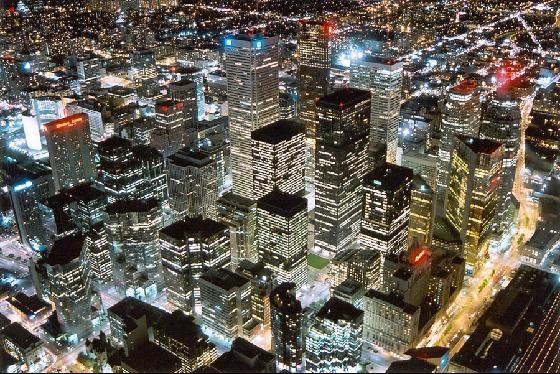
BlogTO pointed to Mark Kingwell’s essay in The Walrus, Toronto: Justice Denied, which is subtitled Is Toronto being taken over by hucksters, fauxhemians, and the “knowledge economy”?.
Here’s an excerpt:
Suppose we are an idea city. Suppose being so means everyone is somehow better off. We could go on chasing our own tails as a leading creative city, but where would that get us? Where, in all the so-called creativity, is our idea of the idea that matters most in an idea economy? Again I ask, where is our idea of justice?
Surprisingly, given otherwise good intentions, we don’t talk about this. We talk about growth, about wealth, about real estate. We talk about sprawl, that great destroyer of common civic feeling, that anti-glue. From a combination of policy and economics, 5 million of us are now flung, barely coherent, across nearly 6,000 square kilometres of territory. We talk about cultural diversity and its challenges, whipsawing from self-congratulation to recrimination. We talk, sometimes, about beauty, or the sore lack of it on almost every corner of this vast, disorganized place. We talk about activism now and then, our utopian ideals aired in jaunty collections of optimistic DIY culture. We even talk about a subject close to justice, namely civility. This is, we might say, the symptomatic presentation of a deeper disease. How, despite a reputation for politeness, we are getting ruder and rougher by the day. How we never look at one another on the street. How we are all wrapped up in ourselves, 5 million small packages shunting along, back and forth, in the vast spiderweb of highways, subway lines, streetcar routes, and sidewalks. Symptom noticed. But what then?
Another excerpt:
Modern distributive models of justice rightly place emphasis on the fate of the least well off; in a non-distributive idea of justice, we can update and expand this idea: a city, like a people, shall be judged by how it treats its most vulnerable members. These may not necessarily be the poorest: consider the systematic disadvantage, in an idea economy, of truncated education, learning disability, and low access to the technologies of success. Torontonians talk about the value of otherness, celebrating cultural diversity in word, but they do not walk that walk. The smug inwardness of our de facto stealth neighbourhoods, the vertical gated communities of condo developments, the lifetime preoccupation with the averted gaze — all this shows city not confident enough to engage with itself. The gravity of downtown is reduced, as so often, to the cash nexus of shopping, democracy soured into a form of narcissistic pathology and sense of entitlement for a few, invisibility for the many. Race and class, poverty and hatred cannot find a point of intervention when the discursive space of the city is limited to surfaces.
One more snippet:
Though a city in pursuit of glory may neglect justice, the opposite does not hold: a truly just city is always a glorious one, because it allows greatness even as it looks to the conditions of strangeness posed by the other. It does not oppose development, including grandiose development, for the sake of some cramped sense of its own modesty; but it does demand, over and over, that all development be, at some level, in the service of everyone. Such a city starts with you, on the street, lifting your gaze and looking, for once, into the face of that person passing. This urban gaze is not male, or female; it is not casual or demeaning; it is not totalizing; it is liberating. It’s the gaze that recognizes, in the other, a fellow citizen, which is to say one who has vulnerabilities, desires, and ideas, just as you do.
I’ll have to give it another later on tonight and mull it over before commenting. Hey, Mark, you OpenCites, thoughts-on-urban-life kind of guy, what say you?